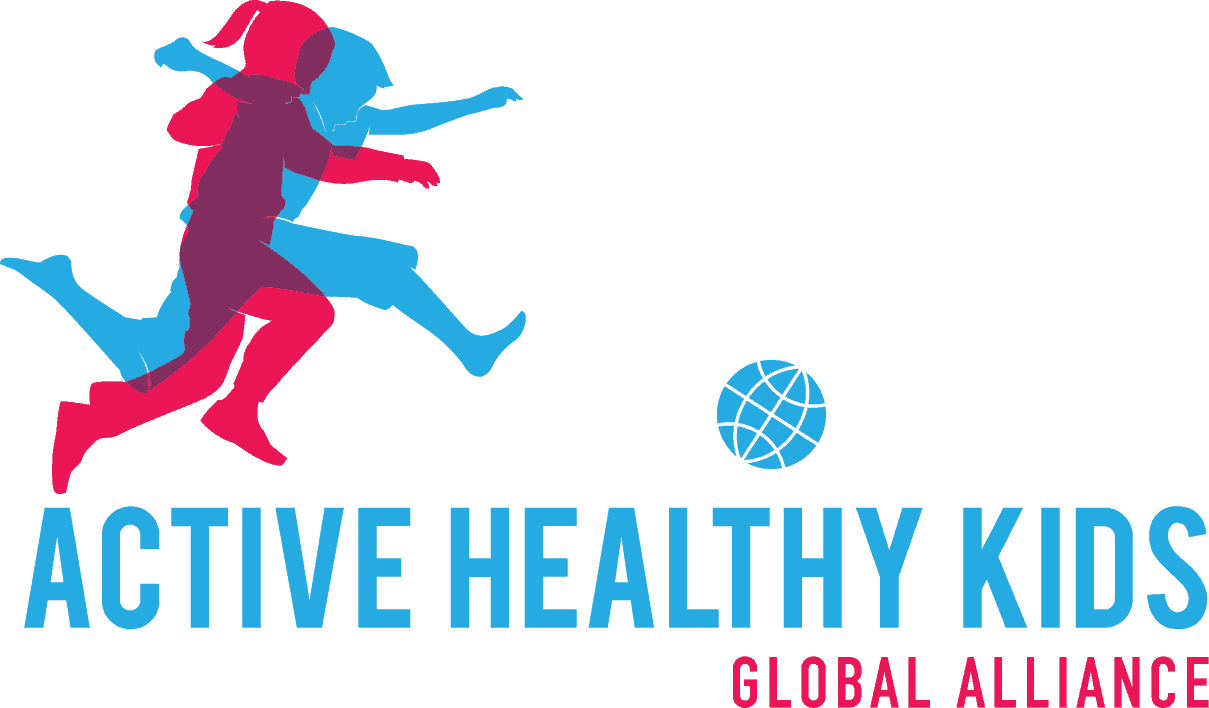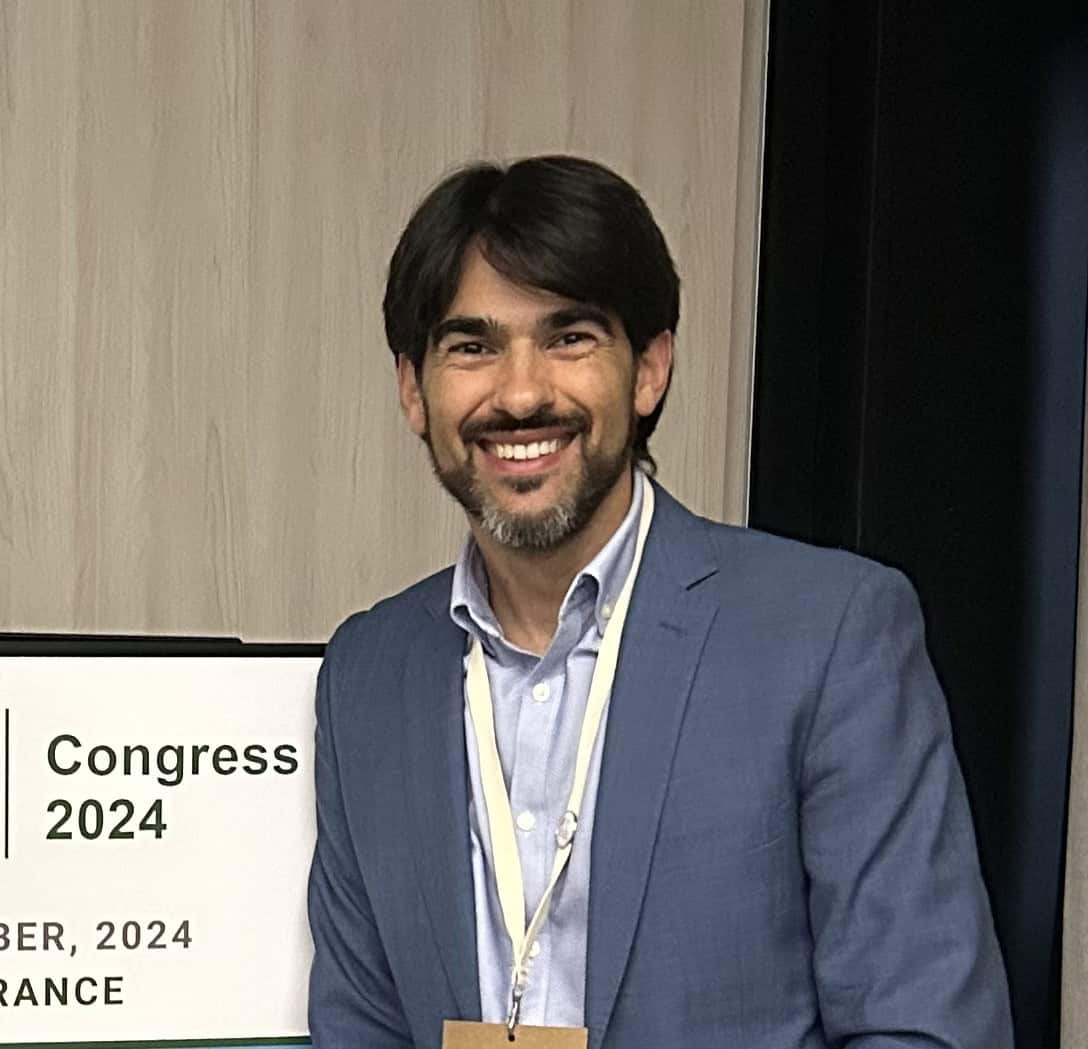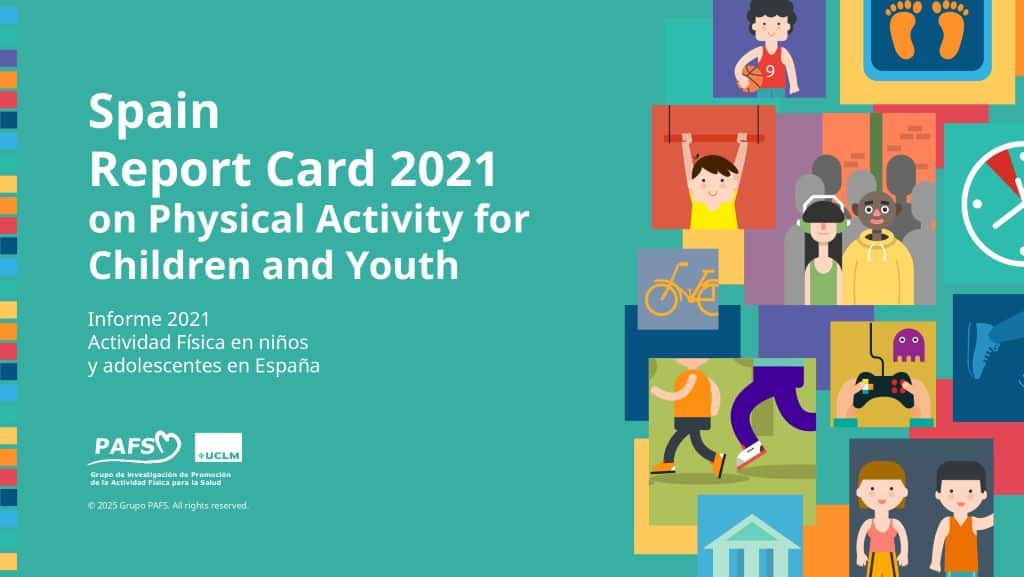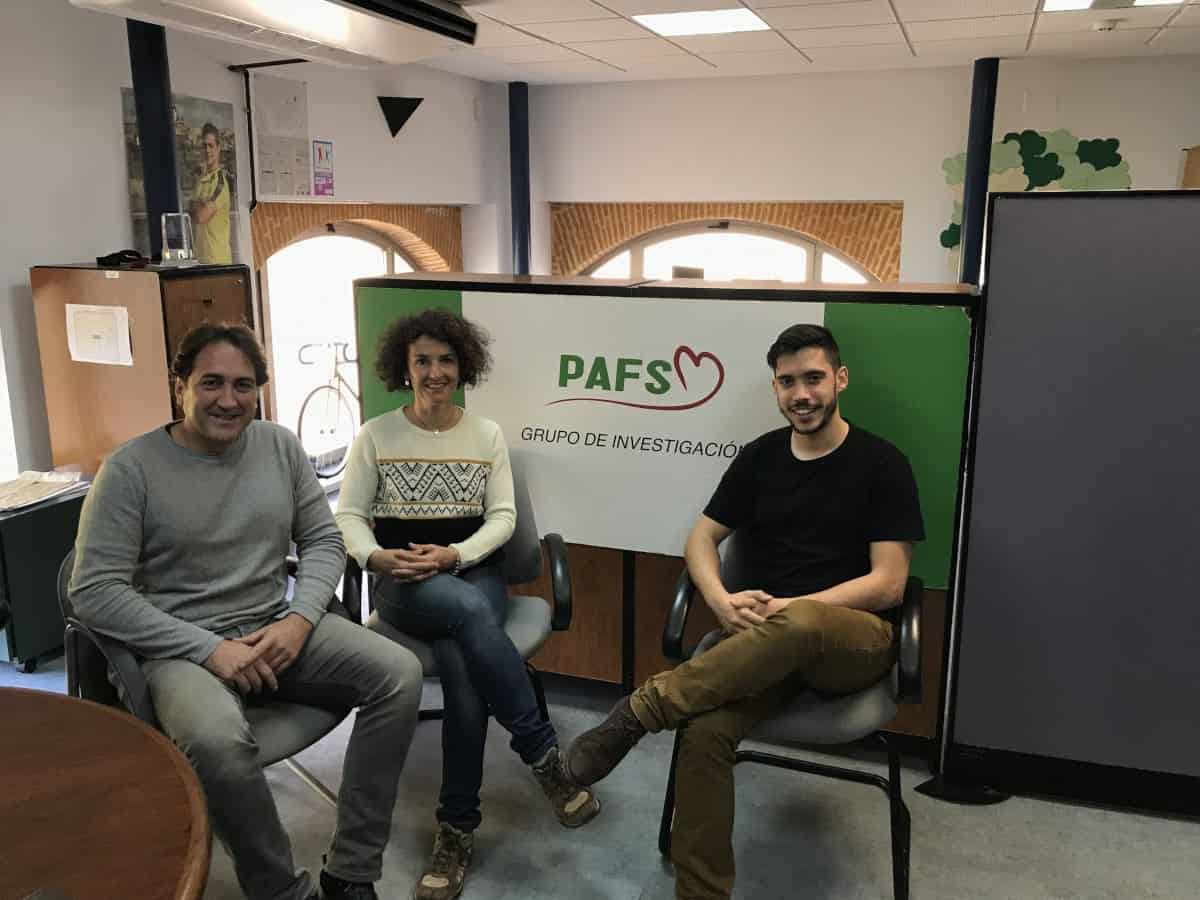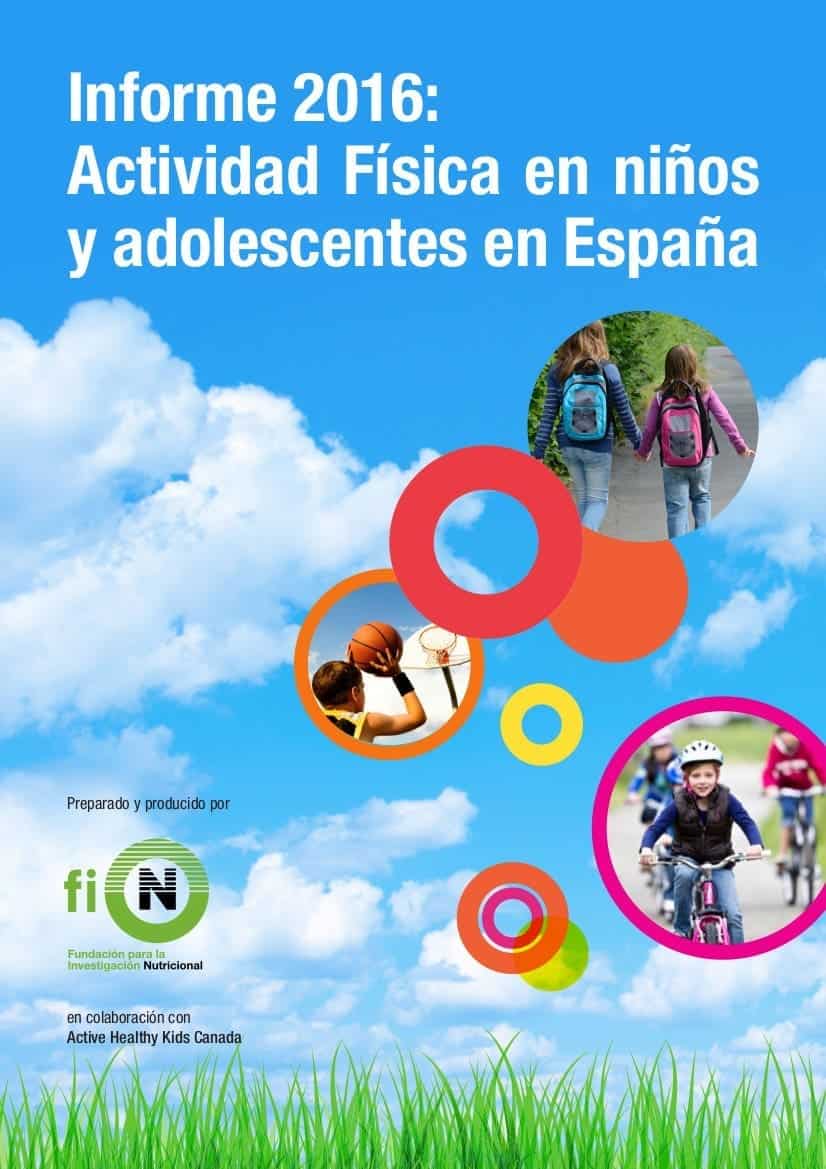
Report Card Leaders
Susana Aznar, Ph.D. M.Sc.
Susana has been lucky to be brought up in a family who always enjoyed physical activity in the Pyrenean mountains. She has a Degree in Physical Activity and Sports Sciences at INEFC-Lleida, University of Barcelona. Master in Exercise and Health at Bristol University (UK) and PhD in Environmental influences on children physical activity to prevent cardiovascular risk factors, at Bristol University (UK). Currently, she is a reader in Physical Activity and Health at Faculty of Sports Sciences at the University of Castilla-La Mancha (UCLM) where she is the director of the research group: Physical activity Promotion for Health (https://grupopafs.com/?page_id=5299&lang=en) From 2017 she is deputy director of the Department in Physical Activity and Sports Sciences at the UCLM.
Expert in the objectively and subjectively physical activity assessment and, fitness levels assessment in children and youth. Her research focuses on children obesity and physical activity, physical activity determinants and, physical activity promotion strategies. Strategies designs are based on Ecological and Behavioral Change models. Some of her work has been done with the Ministry of Education and Ministry of Health publishing National guides in physical activity targeted at Children and adolescents. Currently working on a national project on children and physical activity, obesity and related lifestyle behaviour (https://pubmed.ncbi.nlm.nih.gov/32967871) and, leading a national and a regional research projects promoting active commuting to school (https://grupopafs.com/?page_id=5381&lang=en). She has taken part in several European Research projects (European Youth Heart Study (EYHS), Kids in Motion (KIM)). She is a member of the CIBERfes (Ciber in Frailty and healthy Aging), Carlos III Institute of Health) network. Susana is an expert skier and greatly enjoys cycling, mountaineering and physical activity in the outdoors.
Javier Brazo-Sayavera, Ph.D.
Javier Brazo-Sayavera works at the University Pablo de Olavide (Seville) as associate professor and collaborates with the Universidad de la República (Uruguay) as invited full professor, where he spent almost four years leading a research group and building capacities in the field of physical activity and health. In Uruguay, he led two Report Cards on physical activity indicators for children and adolescents (Global Matrix 3.0 and 4.0). Since he returned to Spain, he is leading the Active Healthy Kids Spanish Network. He is also involved in other initiatives about children and adolescents’ wellbeing such as the SUNRISE Study, The Fitback project or acting as Co-chair in the Working Group for children and adolescents at HEPA Europe since 2023. Therefore, his main research interests are physical activity and fitness in children and adolescents.
Report Card Grades
- Overall Physical Activity: B-
- Organized Sport and Physical Activity: B+
- Active Play: B-
- Active Transportation: B-
- Sedentary Behavior: D
- Physical Fitness: C-
- Family and Peers: B-
- School: C-
- Community and Environment: B
- Government: C
Related Links
Report Card Leaders
Susana Aznar, Ph.D. M.Sc.
Susana has been lucky to be brought up in a family who always enjoyed physical activity in the Pyrenean mountains. She has a Degree in Physical Activity and Sports Sciences at INEFC-Lleida, University of Barcelona. Master in Exercise and Health at Bristol University (UK) and PhD in Environmental influences on children physical activity to prevent cardiovascular risk factors, at Bristol University (UK). Currently, she is a reader in Physical Activity and Health at Faculty of Sports Sciences at the University of Castilla-La Mancha (UCLM) where she is the director of the research group: Physical activity Promotion for Health (https://grupopafs.com/?page_id=5299&lang=en) From 2017 she is deputy director of the Department in Physical Activity and Sports Sciences at the UCLM.
Expert in the objectively and subjectively physical activity assessment and, fitness levels assessment in children and youth. Her research focuses on children obesity and physical activity, physical activity determinants and, physical activity promotion strategies. Strategies designs are based on Ecological and Behavioral Change models. Some of her work has been done with the Ministry of Education and Ministry of Health publishing National guides in physical activity targeted at Children and adolescents. Currently working on a national project on children and physical activity, obesity and related lifestyle behaviour (https://pubmed.ncbi.nlm.nih.gov/32967871) and, leading a national and a regional research projects promoting active commuting to school (https://grupopafs.com/?page_id=5381&lang=en). She has taken part in several European Research projects (European Youth Heart Study (EYHS), Kids in Motion (KIM)). She is a member of the CIBERfes (Ciber in Frailty and healthy Aging), Carlos III Institute of Health) network. Susana is an expert skier and greatly enjoys cycling, mountaineering and physical activity in the outdoors.
Blanca Roman Viñas, M.D., Ph.D.
Blanca Roman-Viñas is a Medical doctor with a specialty in Sports Medicine and a Master’s degree in Human Nutrition. Her PhD dealt about the validation of the IPAQ questionnaire and physical activity measurement in the Spanish population. She works as a researcher at the Nutrition Research Foundation. She is also a lecturer in Sports Nutrition and Exercise Physiology at the Sports Science School at the Blanquerna, Ramon Llull University, Barcelona, and the Girona University.
Her research interests focus on the methodology to assess physical activity at the population level, the evaluation of the adherence to physical activity recommendations, and also the evaluation of dietary habits, the inadequate intakes of nutrients in the population and the Mediterranean diet effects on health.
She has participated in several European projects devoted to the harmonization of nutritional recommendations throughout Europe (EURRECA, The European Micronutrient Recommendations Aligned) or developing platforms based on ICTs to promote physical activity and healthy eating (C4H-Credits for Health; PIPS – Personalised Information Platform for Life and Health Services). She is a member of the CIBERobn (Ciber Pathophysiology of Obesity and Nutrition, Carlos III Institute of Health) network.

Report Card Grades
- Overall Physical Activity: D
- Organized Sport and Physical Activity: B
- Active Play: C-
- Active Transportation: B-
- Sedentary Behavior: B+
- Physical Fitness: INC
- Family and Peers: INC
- School: C+
- Community and Environment: INC
- Government: INC
Related Links
Top Three Priorities
- To increase the possibilities of active commuting: availability of secure walking routes, cycle lanes and paths.
- To increase parents’ awareness in regards of their influence on their children’s physical activity behaviour: role modelling influence (parental physical activity behaviour alone or with their Child), Social influence (this is a non tangible influence, i.e. the value that physical activity has in the family, reading about physical activity, interest in sports, etc.) and, social support (this is a tangible help, such as transport to the physical activity place, providing presents related to physical activity, etc.).
- To work in a multidisciplinary way to increase physical activity levels in society. Identify all different agents and have the correct data to evaluate all interventions and physical activity policies.
Report Card Leader
Blanca Roman Viñas, M.D., Ph.D.
Blanca Roman-Viñas is a Medical doctor with a specialty in Sports Medicine and a Master’s degree in Human Nutrition. Her PhD dealt about the validation of the IPAQ questionnaire and physical activity measurement in the Spanish population. She works as a researcher at the Nutrition Research Foundation. She is also a lecturer in Sports Nutrition and Exercise Physiology at the Sports Science School at the Blanquerna, Ramon Llull University, Barcelona, and the Girona University.
Her research interests focus on the methodology to assess physical activity at the population level, the evaluation of the adherence to physical activity recommendations, and also the evaluation of dietary habits, the inadequate intakes of nutrients in the population and the Mediterranean diet effects on health.
She has participated in several European projects devoted to the harmonization of nutritional recommendations throughout Europe (EURRECA, The European Micronutrient Recommendations Aligned) or developing platforms based on ICTs to promote physical activity and healthy eating (C4H-Credits for Health; PIPS – Personalised Information Platform for Life and Health Services). She is a member of the CIBERobn (Ciber Pathophysiology of Obesity and Nutrition, Carlos III Institute of Health) network.
Report Card Team
Conference Abstract: Movement to Move
Results From Spain’s 2018 Report Card on Physical Activity for Children and Youth
Blanca Roman-Viñas, Fabio Zazo, Jesús Martínez-Martínez, Susana Aznar-Laín, and Lluís Serra-Majem
Affiliation
Roman-Viñas and Serra-Majem are with the Nutrition Research Foundation, Barcelona, Spain and the CIBER Fisiopatología de la Obesidad y Nutrición (CIBERobn), Instituto de Salud Carlos III (ISCIII), Roman-Viñas is also with the School of Health and Sport Sciences (EUSES) Universitat de Girona, Salt, Spain, Serra-Majem is also with the Research Institute of Biomedical and Health Sciences, Department of Clinical Sciences, University of Las Palmas de Gran Canaria. Zazo, Martinez-Martinez and Aznar-Lain are with the PAFS Research group, Faculty of Sports Sciences, University of Castilla-La Mancha, Toledo, Spain. Roman-Viñas (dietmed@fin.pcb.ub) is corresponding author.
Introduction
Trend data from the Spanish National Health Survey shows that the proportion of children who are physically active range from 45% in 1993 to 59% in 1997 and 56% in 2011. The purpose of this study is to update the data since the publication of the 2016 Spanish Report Card.
Methods
The Research Working Group identified and gathered data for the 10 core physical activity indicators that are common to the Global Matrix 3.0. Data sources included: ALADINO study (Alimentación, Actividad Física, Desarrollo Infantil y Obesidad—Food, Physical Activity, Child development and Obesity), with data from 2015, ESCA survey (Enquesta de Salut de Catalunya-Health Catalan Survey), with data from 2016, ANIVA study (Antropometría y Nutrición Infantil de Valencia-Valencian Anthropometry and Child Nutrition) with data from 2013 to 2015 and one study conducted in the Spanish provinces of Murcia.
Results and discussion
Adherence to physical activity recommendations is fairly low for Spanish children and adolescents, and the results (table 1) indicate little improvements compared to the previous Report Card. Some indicators would have been graded even lower if we would have used a more strict definition of the physical activity pattern. For instance, the screen time indicator, is likely to have been over reported as the data to grade it was based on a self-report questionnaire that might have underestimated the screen time. The Active transportation indicator referred to commuting to school only and for short distances. The main limitation of this Report Card is its reliance on data obtained from subjective methods of measurement and different type of questionnaires, which make comparison across surveys and studies quite difficult.
Conclusion
The proportion of Spanish children and youth who achieve the recommended levels of physical activity and screen time was low, especially among females.
Table 1: Grades and rationales for Spain’s 2018 Report Card
| Indicator | Grade | Rational |
| Overall Physical Activity | D | 52% males and 39.8% females from 6 to 9 years old achieved at least 60 MVPA per day (ANIVA study, Valencia (2013-2014 & 2014-2015)
31% males and 14.9% females from 3 to 18 years old achieved 5 or more days of 60 MVPA 34.2% males and 26.9% females from 3 to 14y old achieved at least 60 MVPA per day |
| Organized Sport and Physical Activity | B | 73.3% males and 65.6% females 6 to 9 year old participated in organized sport and/or physical activity programs out of school |
| Active Play | C- | 40.3% males and 32.7% females from 6 to 9 years old reported being outdoors 2 or more hours per day during the week, and 65.9% males and 61.1% females during the weekend |
| Active Transportation | B- | 55% children 6 to 9 years old walked to school and 56.9% walked back from school
61.3% 3 to 14 years old walked to and from school |
| Sedentary Behaviours | B+ | 82.6% males and 83.8% females 6 to 9 years old reported around 2 hours or less of screen time per day during the week (and 53% males and 56% females during the weekend) |
| Physical Fitness | INC | There was very limited data to accurately assign a grade for this indicator |
| School | C+ | 74 % of schools offered their outdoor facilities out of school time
24 to 30% of schools where students were offered the mandated amount of Physical Education |
| Family and Peers | INC | No data was available to assign a grade for this indicator |
| Community & Environment | INC | No data was available to assign a grade for this indicator |
| Government | INC | No data was available to assign a grade for this indicator |
INC=Incomplete
Report Card Grades
- Overall Physical Activity: D-
- Organized Sport Participation: B
- Active Play: C+
- Active Transportation: C
- Sedentary Behaviors: D
- Family and Peers: INC
- School: C
- Community and Built Environment: INC
- Government Strategies and Investments: INC
Related Links
Recommendations
- Health Promoting Schools
- Promotion of sports practice in school-aged children
- Dame10 (Giveme10)
- Movimiento Actívate
- Perseo programme (Pilot study to promote health and exercise to fight against obesity).
Report Card Leader
Blanca Roman Viñas, M.D., Ph.D.
Blanca Roman-Viñas is a Medical doctor with a specialty in Sports Medicine and a Master’s degree in Human Nutrition. Her PhD dealt about the validation of the IPAQ questionnaire and physical activity measurement in the Spanish population. She works as a researcher at the Nutrition Research Foundation. She is also a lecturer in Sports Nutrition and Exercise Physiology at the Sports Science School at the Blanquerna, Ramon Llull University, Barcelona, and the Girona University.
Her research interests focus on the methodology to assess physical activity at the population level, the evaluation of the adherence to physical activity recommendations, and also the evaluation of dietary habits, the inadequate intakes of nutrients in the population and the Mediterranean diet effects on health.
She has participated in several European projects devoted to the harmonization of nutritional recommendations throughout Europe (EURRECA, The European Micronutrient Recommendations Aligned) or developing platforms based on ICTs to promote physical activity and healthy eating (C4H-Credits for Health; PIPS – Personalised Information Platform for Life and Health Services). She is a member of the CIBERobn (Ciber Pathophysiology of Obesity and Nutrition, Carlos III Institute of Health) network.
Conference Abstract: 6th International Congress on Physical Activity and Public Health
Results from the Spanish 2016 Report Card on Physical Activity for Children and Youth
Roman-Viñas B, Marin J, Sánchez-López M, Aznar S, Leis R, Aparicio-Ugarriza R, Schroder H, Ortiz-Moncada R, Vicente G, González-Gross M, Serra-Majem L
Background: The first Active Healthy Kids Spanish Report Card aims to gather the most robust information about physical activity and sedentary behavior of children and adolescents. The purpose of this paper is to summarize the results of the findings from a review of the physical activity levels of Spanish children and adolescents. Methods: A Research Working Group of experts on physical activity and sport sciences conducted a comprehensive data search, based on a review of the literature, dissertations, gray literature and experts’ non published data, to identify the best sources to grade each indicator according to the Active Healthy Kids Canada Report Card model. Results: Overall physical activity was graded as D-, Organized sports participation as B, Active play as C+, Active transportation as C, Sedentary behavior as D, School as C, and Family and peers as Incomplete, Community and the built environment and Government as Incomplete due to a lack of data. Conclusions: Spanish children and adolescents showed low levels of adherence to physical activity and sedentary behavior guidelines, specially females and adolescents.
